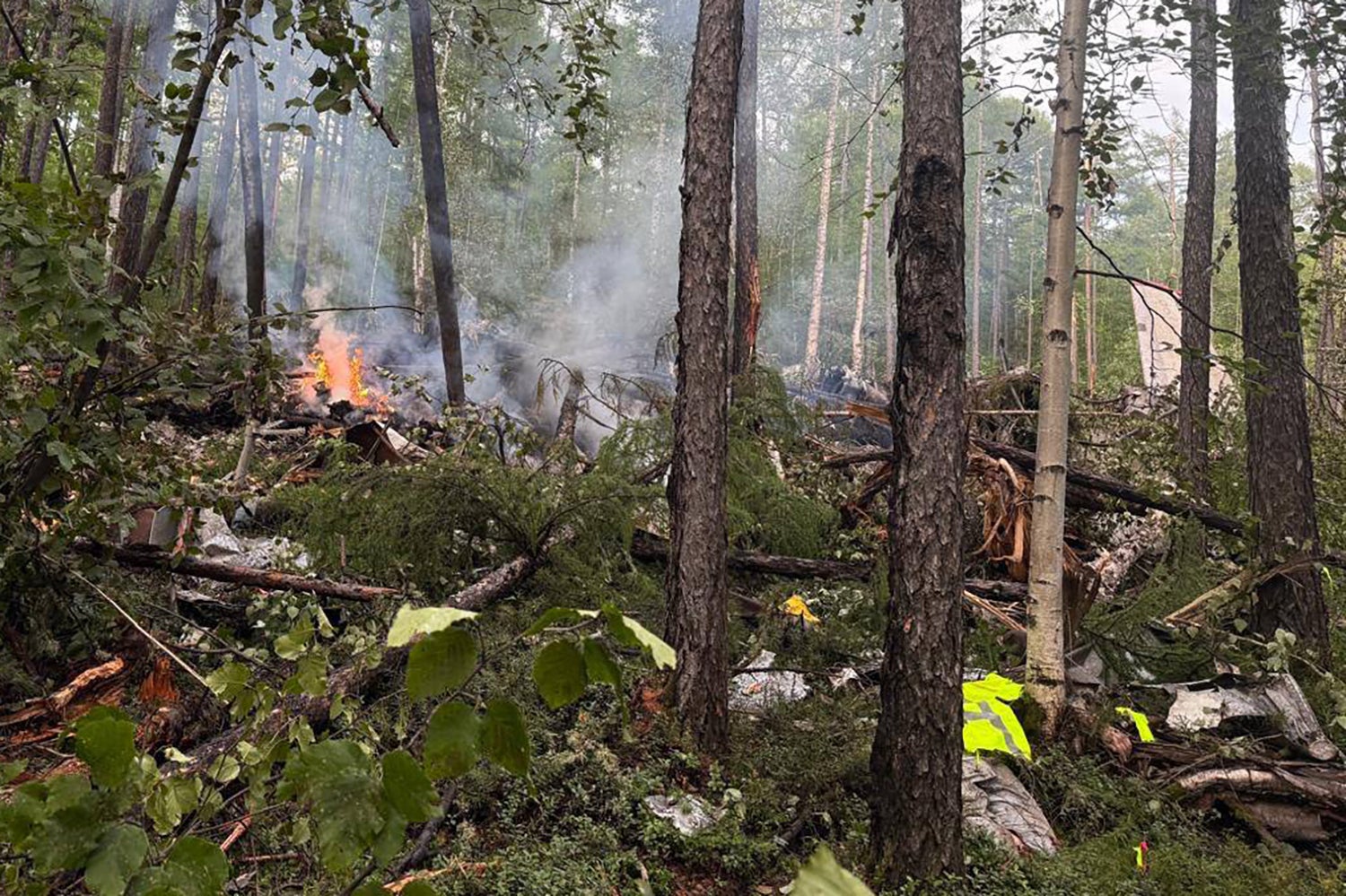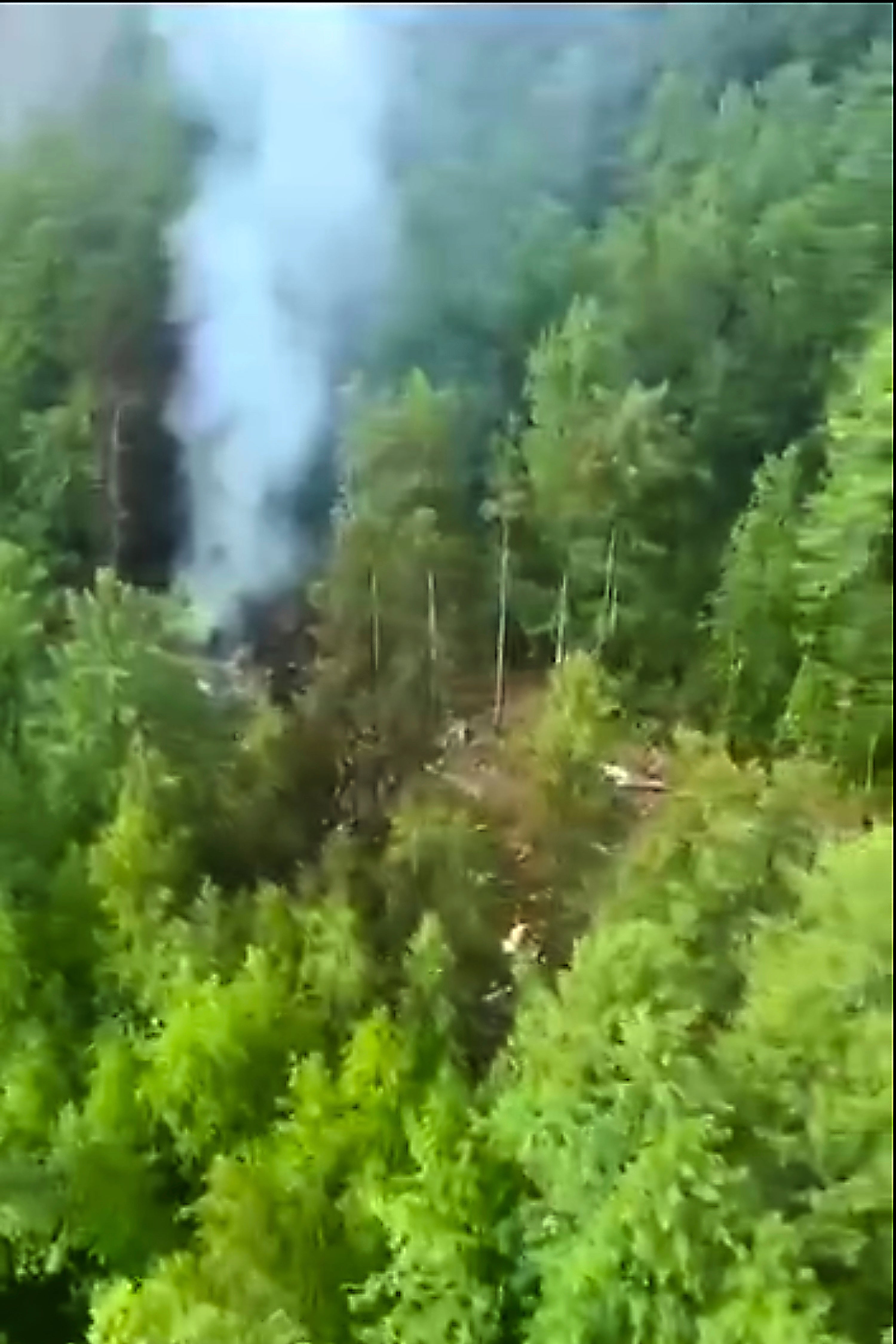A woman avoided the fatal crash of a Russian passenger plane on Thursday after she asked to disembark moments before takeoff, a sequence of events that her family have described as a “miracle”.
Marina Avalyan, 55, had boarded the Angara Airlines plane with her luggage but then received a phone call from her daughter saying her grandchild was sick. She was allowed off the plane, which had been delayed due to rain.
The aircraft, a Soviet-era Antonov An-24 turboprop, crashed while attempting to land in Russia’s Far East on Thursday, killing all 48 people on board. The passengers included entire families, children, and crew members, officials said.
Ms Avalyan was taking the flight to return home to Tynda from Blagoveshchensk after visiting family.
While waiting for takeoff she received a call from her daughter, saying her granddaughter had suddenly developed nausea and stomach pain. With the infant’s father accompanying her older sister to the hospital in an ambulance, Marina was asked to return home to care for their baby.
The plane, delayed due to rain in Tynda, remained on the tarmac long enough for Ms Avalyan to retrieve her luggage and exit the airport. By the time she reached her daughter’s home, the child’s symptoms had subsided. It was then that she received news of the crash.

“She really did leave the plane, collected her luggage, and went home,” her brother-in-law, Samvel, identified by his first name, told local media outlet Pravda.ru. Her family described the timing as “a miracle”.
The An-24 had taken off from Blagoveshchensk, a city near Russia’s border with China, and was en route to Tynda, a remote town in the Amur region that serves as a key railway junction on the Baikal-Amur Mainline. It lost contact with air traffic control at around 1pm local time. The plane’s burning fuselage was later discovered on a forested slope about 15km from Tynda. There were no survivors.
The aircraft, built in 1976, had reportedly passed a recent technical inspection. The cause of the crash is being investigated, but aviation experts suggest poor weather at the time and the fact the plane had a failed initial landing attempt will factor in any probe. Officials said the aircraft was making a second approach to the runway in Tynda, after a first attempt had to be aborted.
Aerial footage released by Russian media showed thick smoke rising from the wreckage when it was first found. With no access roads to the crash site, rescue crews had to cut a path through dense forest using heavy machinery.

A criminal case has been opened for suspected violation of air traffic and transport safety rules, and experienced forensic teams were dispatched to recover remains and investigate the cause.
Among the 48 dead were 42 passengers – including five children – and six crew. Victims included Sergei Shiyan, a well-known fitness coach from Khabarovsk, who was travelling with his wife Natalia and their 18-month-old daughter Eva. They were visiting his wife’s hometown, Tynda, for a vacation.
Another couple, Alexander Mamedov and Elena Mamedova, were on their way to celebrate their 10th wedding anniversary. Their family learned of the crash through news reports.
Irina Alexandrikova, 25, and her six-year-old son Sergei Ochkin also died in the crash. The boy had just undergone surgery and was returning home from Blagoveshchensk. They had taken photographs together the previous evening by the Amur River.
A grandmother, Elena Velikanova, 55, had sent a text to her family just after boarding: “In the plane, meet me.”
She was planning to accompany her eight-year-old granddaughter back home for the summer holidays. Her family now struggles to explain her death to the child.
Flight attendant Anastasia Bessmertnaya, a veteran of the aviation industry since 2007, was among the crew who perished. Her husband, a flight engineer, had previously survived a serious crash in 2011. They leave behind two daughters.
The aircraft’s pilot, Vyacheslav Logvinov, had been working with Angara Airlines, the carrier that operated the ill-fated flight. The company, based in Irkutsk, is one of the few regional Russian airlines still using An-24s – nicknamed “flying tractors” for their ruggedness and reliability in remote, icy conditions.
According to the RussianPlanes database, 1,340 An-24s were built during the Soviet era. Of those, 88 have crashed and 65 have been involved in serious incidents, reported Reuters. Just 75 remain in service globally. Countries such as North Korea, Kazakhstan, Laos, Cuba, Ethiopia, Myanmar and Zimbabwe continue to operate the model.
The Russian government had previously pledged to phase out the ageing fleet in favour of a new model, the TVRS-44 Ladoga, though production is not expected to begin until at least 2027.
Former president Dmitry Medvedev proposed grounding the An-24 fleet in 2011 after a similar crash killed seven people in Siberia.
President Vladimir Putin held a minute’s silence in memory of the victims at a government meeting and expressed his condolences to the bereaved families. Chinese president Xi Jinping also conveyed his sympathies, with at least one Chinese national reported to be among the victims.
Authorities have launched multiple investigations – criminal, administrative, and technical – into the crash, with a government commission also appointed to handle the aftermath.







